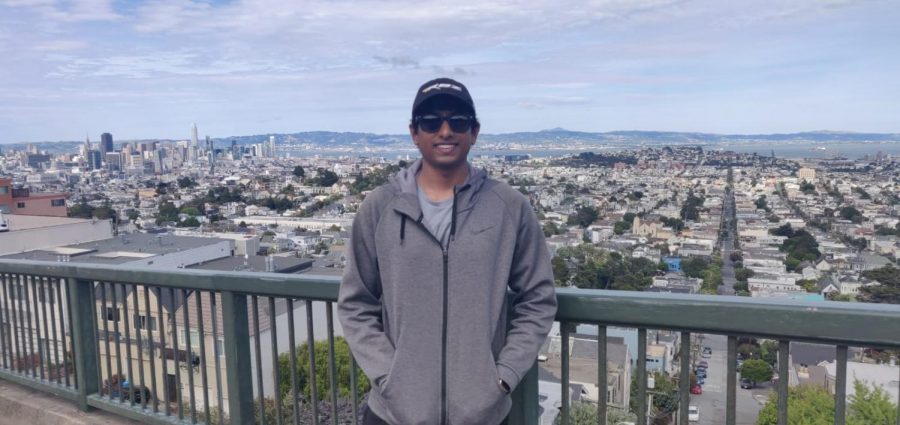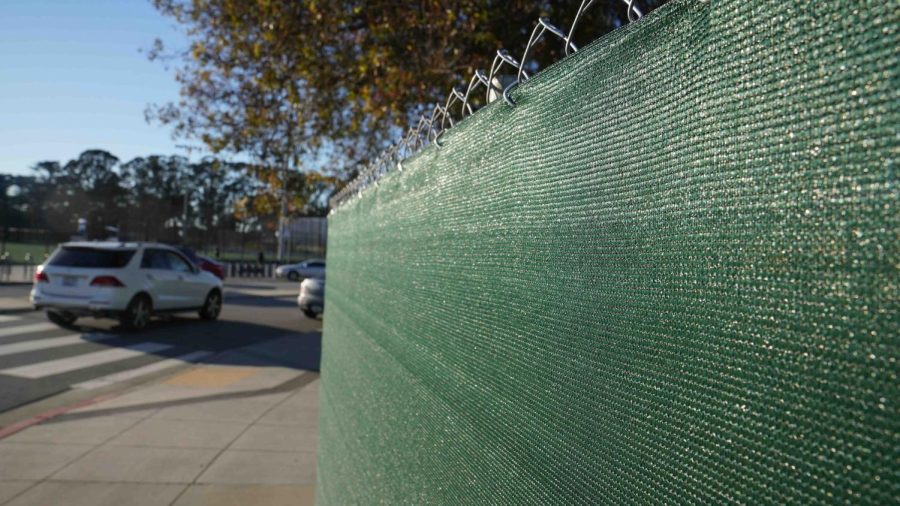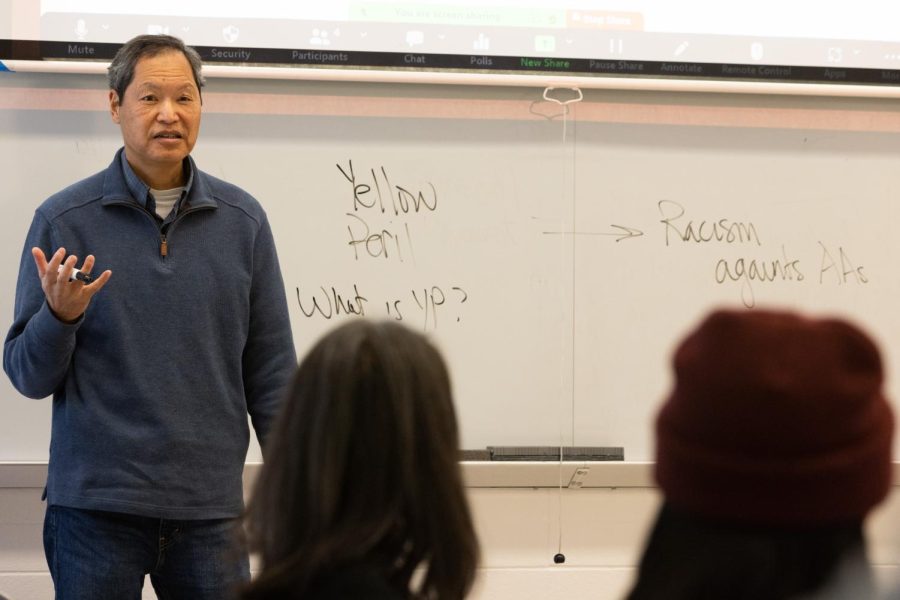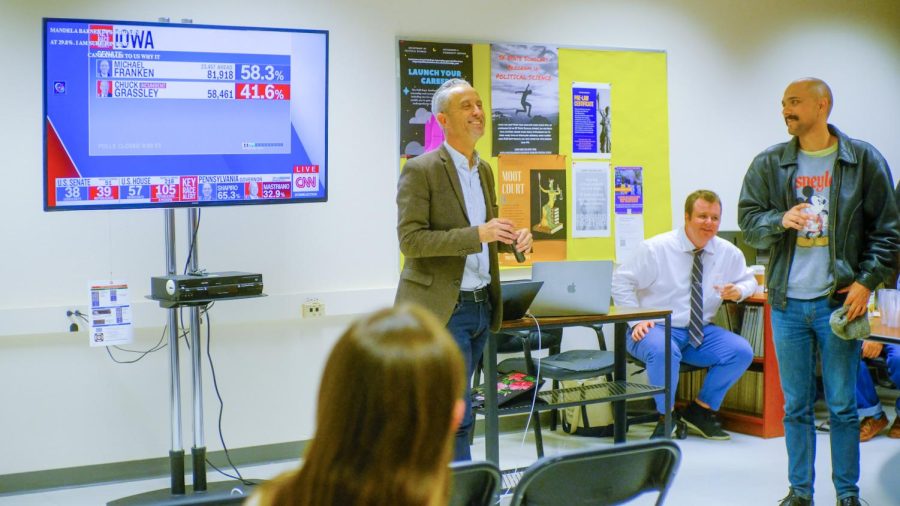Threats of deportation were announced by the Immigration and Customs Enforcement agency (ICE) to over 10,300 California State University (CSU) students last week, only to be rescinded within a matter of eight days.
ICE announced their intentions on June 6 to maintain pre-pandemic visa requirements, which prohibit foreign exchange students from living in the United States if they take more than one online class. Immediately following the announcement however, efforts were taken by schools all over the country to protect their students, and legal arguments made by Harvard and MIT against ICE ultimately helped overturn the decision during a hearing on Tuesday afternoon.
Kevin Immanuel Gubbi, an international student from India, said he tried to stay hopeful and proactive during the uncertain times. For Gubbi, deportation would have meant no access to the lab work required to complete his thesis, and he is one semester away from receiving his master’s degree in electrical engineering.
“Right after the ICE statement, we weren’t sure what to do if it went through,” Gubbi said. “All of our research is here, and if we go back to our home countries, learning will be difficult for the time differences … and we can’t access the resources for our research.”
SF State President Lynn Mahoney released a statement expressing her relief shortly after the recension.
“We are deeply grateful to everyone — on campus and off — who worked diligently and rapidly over the last week in support of our international students,” Mahoney said.
In response to the policy change, Gubbi put together a Google form in efforts to create a collective response for the university’s administration to turn toward. He asked SF State international students to fill it out and received 41 responses, in which many students pleaded to stay in the U.S. after making lives for themselves here over the years.
International student Anna Speder is one of the students who expressed her concerns.
“Ever since I moved to the U.S., all I’ve been doing is studying hard, spending money in this country, paying three times the tuition as Americans and sticking to every single one of the immigration rules,” Speder wrote. “I’m extremely worried and upset that now I have to leave the country because of a matter that is completely out of my control.”
Although F-1 visa students’ status in the U.S. is safe for now, this past week revealed the case-by-case vulnerabilities international students and all non-residents face so long as the Trump administration continues to push for more stringent immigration policy.
Some feared they wouldn’t have completed their degrees, a few worried they would be displaced because of travel bans to their home countries and one student mentioned that they wouldn’t be able to receive their required medical care if they went home.
“[The policy] never sounded realistic even when it was announced. Seems like a ‘one-size-fits-all’ decision with a lot of imperceptive assumptions,” Gubbi said.

Online Learning and English Fluency
Ester Vandeput is a student from Belgium who stayed in the U.S. after the school shut down. She feared her English fluency would decline if she couldn’t return. Vandeput says she is relieved to stay with her host family for her third year.
“A lot of people don’t realize how hard it is to go back to your home country and start speaking a whole other language all over again, and still be expected to keep the same perfect grammar or like understand all the stuff,” Vandeput said. “Once you stop practicing a language, you lose it.”
Vandeput said she’s adjusted to online learning, but that many of her fellow international students struggle with the new learning model.
Remote learning can be difficult for some students who speak English as a second language. It’s not uncommon for students to participate in online lectures without activating their webcam. Social cues like body language and facial expressions, which normally contribute to a sense of understanding, are sparse in the landscape of digital learning.
“Off the top of my head, I know maybe 20 people that have had a really hard time trying to adjust on Zoom and not being able to see the mouth and the expression on people’s faces,” Vandeput said.
Culture Shock, Reverse Culture Shock… And Culture Shock Again
International students may feel caught in the middle of two ways of life once they return home: a phenomenon known as reverse culture shock. After adjusting to U.S. customs, cultural normalities and traditions may feel like a part of their identity to them.
“Our concept of ‘home’ is built on these ideas of familiarity, routine, communication and identity,” an archived article from the U.S Department of State read. “Home is more than the physical place in which we live. Home is associated with all of the people, actions, feelings, emotions and cues that make us feel ‘at home.’”
Approximately 90 SF State international students returned to their home countries following the city’s shelter-in-place order. They said they had to quickly revert to their lifestyles before the U.S. while managing classes at unusual times.
Junior business administration student Siddharth Chaudhari’s experience is demonstrative of this. Chaudhari attended virtual classes in the middle of the night for three months. One of his professors held office hours at 3:30 p.m Pacific Standard Time, which is 4 a.m in Indian Standard Time.
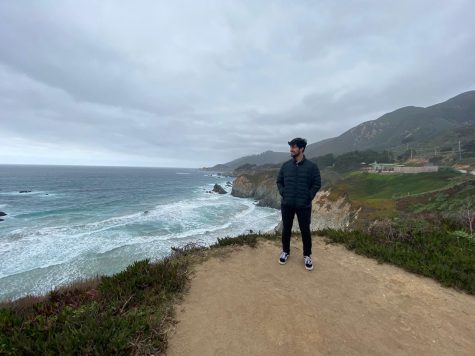
“You cannot expect someone to wake up at 3 a.m in the morning and sit for the online class load, while all of their classmates are doing that in the morning with fresh minds and everything,” Chaudhari said.
After five months in India, Chaudhari plans to come back to the U.S. so he won’t miss out on career opportunities such as internships. Though he says the move will be an adjustment, he thinks it’s a better choice than being stuck between two time zones.
Tuition Prices and Financial Differences
Vandeput said that out-of-state tuition prices may have influenced universities nation-wide to take these deportation threats seriously.
“We put in so much money for out-of-state tuition and since they already lost so much funding, hopefully they’ll want to keep us,” she said. “If not for the people, at least for the money.”
At SF State, international students pay an additional fee of $396 per unit, which adds up to $5,940 worth of extra fees for a 15-unit undergraduate semester. Out-of-state students, which include non-resident students, pay almost three times more than in-state students with no financial aid available. 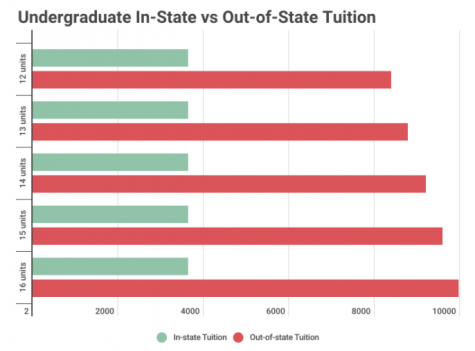 As it is, SF State is already bracing for a predicted $38 million in budget cuts, which is compounded by a dramatic forecast depicting an enrollment drop of around 3,000 students in the fall.
As it is, SF State is already bracing for a predicted $38 million in budget cuts, which is compounded by a dramatic forecast depicting an enrollment drop of around 3,000 students in the fall.
International students contributed over $41 billion to the U.S. economy in the 2018-19 school year, and according to a study conducted by NASFA: Association of International Educators, formerly known as the National Association of Foreign Student Advisers, they fueled $6 billion alone in the state of California.
Gubbi said he’s thankful to have the support of his family back in India and feels for those who aren’t as privileged. He believes this scare reveals the financial stress and sacrifices many students face when they move abroad, since many international students pool all of their resources to come here.
“What I might take for granted, let’s say booking a flight ticket, someone else might not have the same privilege,” Gubbi said. “What I might not see may be the main fear factor for someone else.”
Following the Tuesday announcement, SF State’s Office of International Programs (OIP) and the Counseling and Psychological Service (CAPS) offered a virtual healing space on Wednesday evening for F-1 visa students to share their feelings over the week’s events.
F-1 visa consultations are available via phone and email, and individual counseling services are available to students on the CAPS webpage.
“I am sorry that this is causing so much pain and anxiety for many of you and your families,” Mahoney wrote to international student Chayanee Jantaradaval. “Please know that we are here to help. You are an invaluable part of our community and the Gator family.”





